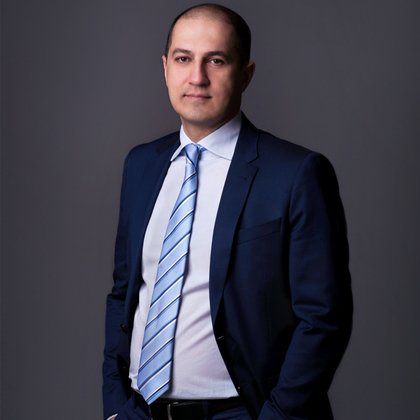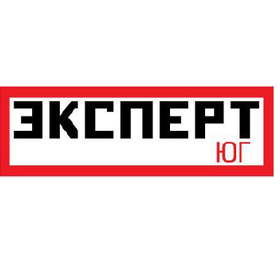 The magazine “Real business” in a new issue for December-January 2015-2015 published an article of executive director National Law Company “Mitra” Ahmetov Zaurbek. He said about potential after-life of temporary tax holiday for employers.
The magazine “Real business” in a new issue for December-January 2015-2015 published an article of executive director National Law Company “Mitra” Ahmetov Zaurbek. He said about potential after-life of temporary tax holiday for employers.
The temporary measure to provide tax holidays for entrepreneurs was almost the only way to keep many of them on the float. However, after some time the interest of the fiscal authorities in the activities of the beneficiary entrepreneurs will again resume. What can be done to ensure that the new wave of inspections of unreasonable use of tax preferences does not cover bona fide payers, says Zaurbek Akhmetov, executive director of the National Law Company “Mitra”.
Stimulating entrepreneurial activity in the sphere of small and medium business has been one of the main task for our authorities for many years. This was mentioned more than once from the high tribunes. It should be noted, the Government of the Russian Federation and the legislators have done a lot.
On the general background of anti-crisis measures, the granting of the right to apply tax holidays to all first-time registered individual entrepreneurs in the sphere of industrial and personal services could not go unnoticed, the purpose of which is to reduce barriers to starting entrepreneurial activity by self-employed citizens. So, from 01.01.2015, the amendments to the Tax Code of the Russian Federation that give the right to the subjects of the Russian Federation to introduce tax holidays in the form of a zero tax rate for individual entrepreneurs have come into effect. It should be noted that these preferences apply only to taxpayers who carry out entrepreneurial activities in the production, social and (or) scientific spheres and apply a simplified taxation system or a patent taxation system. Such amendments were made to Article 346.20 (supplemented by Clause 4) and to Article 346.50 (supplemented by Clause 3) of the Tax Code of the Russian Federation. Many subjects of the Russian Federation promptly supported the initiative of the federal center and adopted the relevant regional laws (for example, at the date of publication such laws were adopted by all subjects of the SFD). I would not like to make a pause on the specialties of the application of the above-mentioned norms of the law. The specialized press has already been written about this. I will only note that the zero tax rate for USN, like any other relief in the collection of compulsory payments, in crisis conditions can only be welcomed. At the same time, the taxpayer should understand that the fiscal authorities in their inspections focus their attention specifically on the use of various preferences.
It is not a secret that tax benefits are not in all cases reasonably used by taxpayers in order for reducing the tax burden. In our case, this may mean that the tax authorities have interest towards the activities of beneficiary entrepreneurs, applying a zero rate. It is easy to predict that, first of all, the examiners will try to establish whether the person applying the zero rate on the STS is actually carrying out entrepreneurial activity and whether the ultimate beneficiary is the ultimate owner of the business. Specific attention will be paid to the issues of affiliation of counterparties and the objectives of transactions. In this regard, I would like to warn those businessmen who see an opportunity to minimize taxes by applying this benefit. For example, we can talk about schemes where the total revenue of an already working taxpayer will be formally transferred to a newly registered entrepreneur (or a group of entrepreneurs), applying a zero rate for the STS. In this case, the actual owner of the business and the final beneficiary will be other persons, and not the newly registered entrepreneur himself.
It is too early to speak about any precedents from the practice of applying the zero tax rate for STS. Nevertheless, judicial practice shows that the use of various methods of minimizing taxes through the application of special tax regimes (primarily STS and UTII) is a rather risky business. One of the latest examples of this is Case No. A12-24270 / 2014, which was examined on 25.11.2015 by the Economic Collegium of the Supreme Court of the Russian Federation. Based on the results of the examination, the judges supported the position of the tax inspection, which announced the scheme of tax evasion. The company and the individual entrepreneur created a tax evasion scheme, which allowed them to distribute the proceeds among themselves in order to minimize their tax payments. In particular, they carried out trading activities in the same building with a common entrance and exit, their cash registers were not separated from each other, revenue was accounted through a single software, and the same employees worked for the company and the businessman.
This case confirms that recently the tax authorities could achieve serious success in unraveling quite complex schemes for avoiding taxation: methods of gathering evidence are being improved, law enforcement agencies are actively joining the work of tax authorities. Contributes to the achievements of tax authorities and the position of courts, which when considering tax disputes are guided not so much by the language of the law as by its "spirit." Today, we should understand that formal execution of the law by the taxpayer for minimizing taxes may not be enough.
For more information click here.


